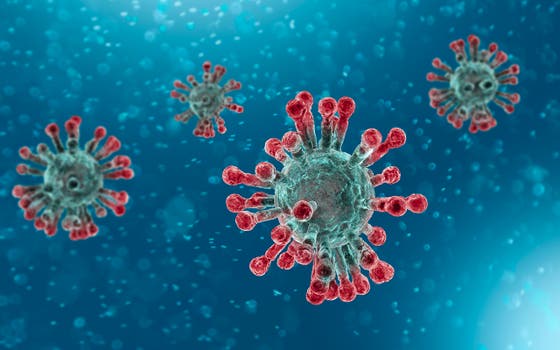Jun 10: Dutch study into anti-malarial drug against COVID-19 discontinued

In the Netherlands a study into the effect of chloroquine and hydroxychloroquine (HCQ) on patients with a COVID-19 infection has been discontinued. These old anti-malarials could have an inhibitory effect on the complaints of patients with COVID-19. However, the initial results show no effect in European studies or in the Dutch study. In addition, there are fewer and fewer hospital admissions of patients with COVID. That is why the participating Dutch centers decided to prematurely discontinue the study. The study was funded by ZonMW.
Chloroquine has an inhibitory effect on the propagation of the SARS-CoV-1 virus. Therefore, this anti-malarial was used in China as a treatment for COVID-19. The first reports were positive and in China the drug chloroquine was included in the treatment guideline. The Dutch treatment guideline also recommended prescribing (hydroxy) chloroquine ((H) CQ) in admitted patients with COVID-19. These drugs already have extensive experience in the treatment of malaria, rheumatism and the autoimmune disease SLE (systemic lupus erythematosus). Early administration in particular seemed to have an effect.
Dutch study (ARCHAIC)
Since there was no proven effective therapy for COVID-19, Andy Hoepelman, professor of Internal Medicine and Infectious Diseases at UMC Utrecht, decided in March 2020 to request a grant for a randomized study into a treatment strategy with CQ or HCQ. The study was set up partly on behalf of the Dutch Association of Internist Infectiologists (NVII). In the study, the antimalarial drugs were used in patients with mild symptoms who were admitted to Dutch hospitals. The aim of this study was to determine whether treatment with CQ or HCQ could influence the course of the disease in such a way that fewer patients deteriorate and lead to fewer admissions to Medium or Intensive Care units.
Publication Lancet and results English study
A publication in the renowned medical journal "The Lancet" on potential drug toxicity led to WHO's decision to discontinue an international study on the effect of HCQ at the end of May. The Medical Ethics Review Committee (METC) subsequently asked UMC Utrecht to also temporarily discontinue the Dutch study. When doubts arose about the data used from the Lancet publication, and it became clear from an English study that there was no toxicity, the international studies could be reopened.
However, the researchers of the English study (the Recovery trial) decided to immediately analyze the data on the effectiveness of HCQ. There appeared to be no difference in the 28-day mortality between patients who received standard treatment and patients treated with HCQ. Although the design of the English study (sicker patients) is different from that of the Dutch study (early treatment), the participating centers jointly decided to discontinue the study. Also because the possible effect of HCQ can only really be determined after research with large groups of patients, and currently hardly any patients are admitted to Dutch hospitals with COVID-19.
On the one hand, the doctors at the participating Dutch centers are pleased that the measures taken by the government and RIVM are so successful that few patients with COVID-19 are admitted to hospital. But as researchers say they are disappointed that they have not been able to complete the study.
